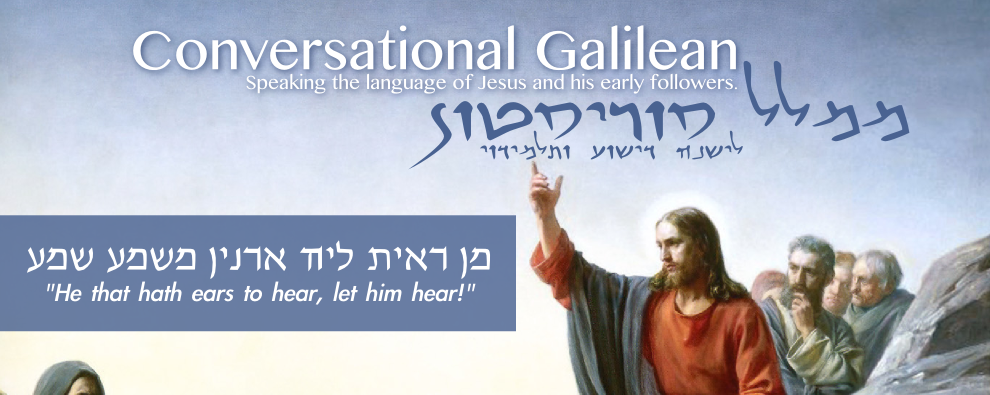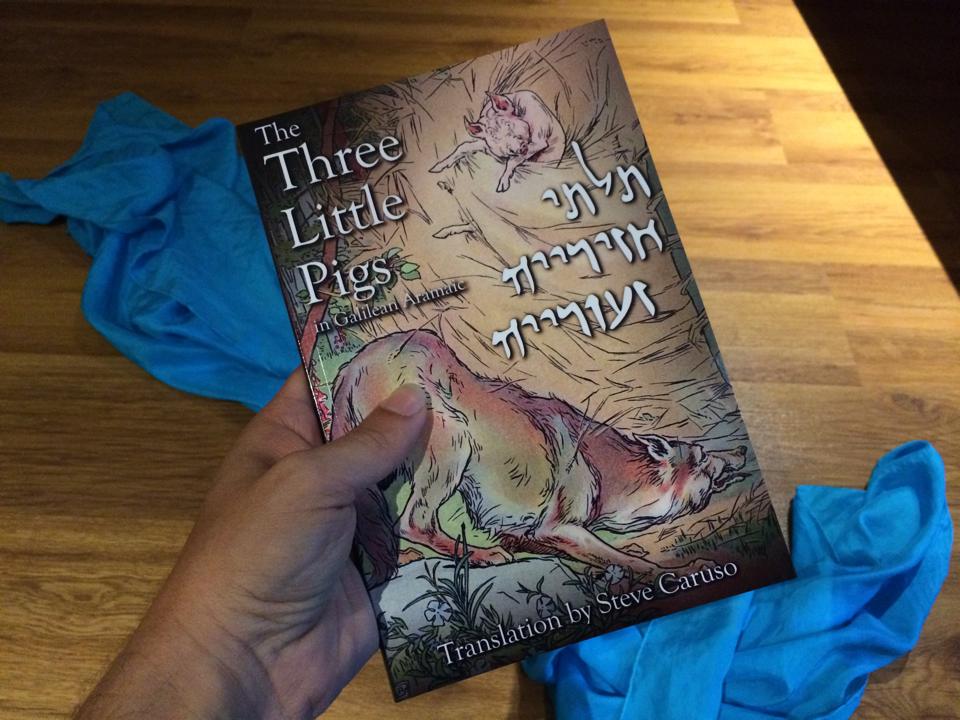Unit 2 Lesson 1 is now complete and up in two parts! However, I first recommend that you view the Lesson Tutorial over here first in order to get how it works. 🙂
Peace,
-Steve

Unit 2 Lesson 1 is now complete and up in two parts! However, I first recommend that you view the Lesson Tutorial over here first in order to get how it works. 🙂
Peace,
-Steve

Well, The Three Little Pigs in Galilean Aramaic is finally up on Amazon.com (click here).
It’ll also be coming soon to Kindle, Nook, and iBooks.
Hurray! 🙂
Peace,
-Steve

The Three Little Pigs’ proof arrived yesterday and I’ve sent out all of the final changes. Fairly soon it will be available for purchase on Amazon.com and other major bookseller outlets!
In the meantime, Pre-Orders are available over on Aramaic Designs for the paperback, audiobook, and a DRM free digital copy (PDF) which you can check out by clicking here and if you use the coupon code LITTLEPIGS you can get 10% off each of them. 🙂
If anyone would like a review copy for their blog or another publication, please email me at AramaicDesigns@gmail.com with the details.
Peace,
-Steve
No, this isn’t some epic battle or what not, but more a brilliant metaphor for what can be seen when one looks at the New Testament through Aramaic eyes.
When one recites Shakespeare in its original accent, there are puns and wordplay that leap off the page that are simply not there in modern language. In the same manner, when one looks at the words of Jesus and his early followers in Aramaic, one sees things that they cannot even fathom in Greek or English.
Note to self: If I’m ever in London, I need to check out one of the Globe performances in OP. 🙂
Peace,
-Steve

Another interesting potential quirk of the Aramaic language, specifically the Galilean dialect, may clear up a small source of confusion that presents itself between two of the Gospel accounts: The Sermon on the Mount (Matthew 5-7) and the Sermon on the Plain (Luke 6).
Scholars have spilled much ink over comparing these accounts, finding parallels between the teachings found in these portions, even when some of the sayings don’t quite fall into the same places. For example, we have:
However, despite all of these parallels and similarities, one thing has always been puzzling and a matter of great contradiction: Why does Matthew say that the sermon was shared on a mountain (ὄρος = /oros/), where Luke says Jesus descended a mountain and shared his preaching on a plain (πεδινός = /pedinos/)? Aren’t those two things rather opposite, glaring details?
The answer may rest within the Aramaic word
which in Galilean is usually spelled
. Where in most Aramaic dialects, it means “mountain” in Galilean it can mean either “mountain” or “field.”
As the early oral traditions circulated and were re-told many times before they were written down in the Gospels, this kind of confusion could have happened readily. Galilean Aramaic speakers (who were among the first of Jesus’ followers) might not have caught the distinction without context, and once the story was translated into another dialect of Aramaic, or even another language such as Koine Greek (which is what the New Testament was compiled in) the sense in that telling was codified.
Notes: